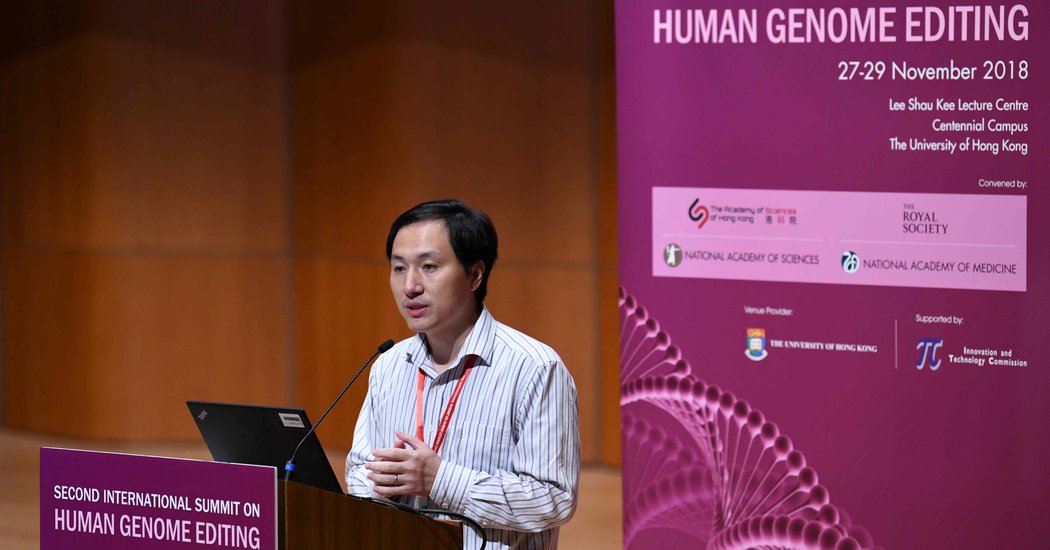
BEIJING — China said on Thursday that it had suspended the work of a scientist who claims to have created the world’s first genetically edited babies, saying his conduct appeared to be unethical and in violation of Chinese law.
The scientist, He Jiankui, announced on Monday that he had used the gene-editing technique Crispr to alter embryos, which he implanted in the womb of a woman who gave birth to twin girls this month. At an international conference on Wednesday, he asserted that he was proud of what he had done.
Xu Nanping, China’s vice minister of science and technology, said Dr. He’s work was still being investigated. But based on news reports, he said, Dr. He appeared to have “blatantly violated China’s relevant laws and regulations” and broken “the bottom line of morality and ethics that the academic community adheres to,” the state broadcaster China Central Television reported on Thursday.
“It is shocking and unacceptable,” Mr. Xu was quoted as saying. “We are resolutely opposed to it.”
[Like the Science Times page on Facebook. | Sign up for the Science Times newsletter.]
The suspension follows international condemnation from scientists who maintain that Dr. He’s conduct was unethical. They say there are serious unanswered questions about the safety of embryo editing and a need to make sure that such research is conducted in a transparent, monitored way so the technology is not misused.
Mr. Xu had said earlier that Chinese regulations issued in 2003 permitted gene-editing experiments on embryos for research purposes, but only if they remained viable for no more than 14 days.
On Monday, a group of 122 Chinese scientists issued a statement calling Dr. He’s actions “crazy” and his claims “a huge blow to the global reputation and development of Chinese science.”
At the Second International Summit on Human Genome Editing in Hong Kong on Wednesday, Dr. He acknowledged that he had not made his university in China aware of the research he was doing. He said he initially paid for the research himself, then later from his university funding.
Dr. He pushed back against suggestions that he had been secretive about his work, saying that he had presented preliminary aspects of it at conferences and consulted with scientists in the United States and elsewhere. He said he had submitted his research to a scientific journal for review and had not expected to be presenting it at the conference.
Dr. He had been scheduled to speak again at the conference on Thursday, but his talk was canceled.
Robin Lovell-Badge, a professor of genetics and embryology at the Francis Crick Institute in London who moderated the Wednesday session, said in an email that “it would have been difficult to have sufficient security” for a second talk. He said that Dr. He decided not to attend after he was told about the security arrangements.
Dr. Lovell-Badge said Thursday that the organizers had felt it was “important to give Dr. He a platform to present what he had done.”
“We therefore do not regret at all allowing him to present yesterday, but giving him a second opportunity today might also have been viewed as support for him,” he said. “This is another reason the committee did not want him back today.”

